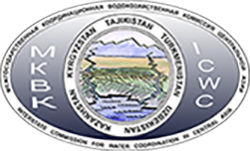By-law of the Interstate Commission for Water Coordination of Central Asia (ICWC)
I. General
1.1. Interstate Commission for Water Coordination in Central Asia (ICWC) is created by the Republic of Kazakhstan, the Kyrghiz Republic, the Republic of Tadjikistan, Turkmenistan and the Republic of Uzbekistan according to Agreement on co-operation in common management of international water resources use and protec-tion adopted by heads of states 18th February 1992 in Almaty.
1.2. ICWC in its activity is led by agreements on common water resources use in the Amudarya, Syrdarya, Chu, Talas rivers basins and by given status.
1.3. Main goal of ICWC creation is approvement of the principles of common water resources management and measures on joint programs realization on the base of mutual respect of the Sides interests.
II. Main objectives
2.1. Determination of unified water policy, elaboration of its major directions with regard to population and industry branches, water resources rational use and protection, large reservoirs regulation, river flow provision.
2.2. Elaboration and approval of annual water consumption limits for each state on major water sources, large reservoirs operational regime, water allocation manage-ment under actual year humidity and water-economy situation.
2.3. Elaboration and realization of ecological programs related to the Aral Sea desiccation and water sources exhausting, establishing annual water supply to the Aral Sea and deltas, sanitary releases along rivers and canals.
2.4. Elaboration of recommendations to governments on united pricing policy and possible losses compensation related to common water resources use and on water use legal background.
2.5. Coordination of large scale works and joint use of actual potential of water-economy.
2.6. Creation of unified information system on water resources use, irrigated lands monitoring, common hydro-meteorological provision.
2.7. Coordination of joint research in regional water problems scientific-technical provision. ICWC attracts if necessary international organizations.
2.8. Promotion of cooperative relations development on water saving technology, new methods of irrigation and its technique, water account and measurements introduction.
2.9. Elaboration common programs on emergency situation and natural disasters prevention.
III. Structure and activity
3.1. ICWC consists of water-economic organizations' leaders.
3.2. ICWC meetings are held quarterly and if necessary on the one side initiative under chairmanship of the appropriate representatives in the appropriate capital.
3.3. Each ICWC-member has "veto" right on decision considered.
3.4. ICWC creates executive bodies and provide their financing on the parity principle with share participation of each country and creates special interstate investment funds for work joint financing.
3.5. ICWC provides necessity of its decisions implementation for all water consumers and water users of all countries-founders.
3.6. BWOs annually elaborate releases to the Aral Sea. Thrown volume of water can not be used for other purposes. Water conveyance to the Aral Sea and the deltas is executed under permanent ICWC control and is a subject considered at each ICWC meeting.
IV. Executuve bodies/p>
4.1. ICWC executive and control bodies are BWOs "Amudarya" and "Syrdarya".
4.2. BWOs provide established limits in the rivers basins. They operate water-intakes, hydrostructures, reservoirs of common use, canals and other objects under strict observance to ecologic requirements.
4.3. ICWC charged BWOs to elaborate the programs of scientific-research and design works on water resources use and protection in the Aral Sea basin and provides their fulfillment.
4.4. BWOs have juridical rights, stamps, bank accounts and act according to their status.
V. ICWC rights and obligations
5.1. ICWC approves water-intake limits from interstate water sources (with division on growing and non-growing periods) with regard to foreseen water situation and es-tablished releases volume to the Aral Sea and deltas. It also consideres and makes decisions on water-intake limits correction according to water situation.
5.2. ICWC permits to BWOs to make water-intake operative correction within the established limits.
5.3. ICWC consideres and approves BWOs` activity program, annual capital investments, input expenditures, etc.
5.4. ICWC decisions are obligatory for all water users independently of their property form, state or departmental appliance.
VI. Order of status change or activity cessation
6.1. Actual status can be changed by ICWC decision.
6.2. ICWC discontinues its activity according to agreed decision of all states-participants.
6.3. Property and jointly created funds and also all objects transmitted to BWOs under provisional administration, in case of ICWC liquidation are devided between states-participants according to established order of their creation.
ICWC status is signed on 5th December 1992 in Tashkent in Russian in 7 copies, having the same juridical power.
For the Republic of Kazakhstan
N. Kipshakbayev
For the Kyrgyz Republic
M. Zulpuyev
For the Republic of Tajikistan
T. Khakimov
For Turkmenistan
A. Ilamanov
For the Republic of Uzbekistan
R. Giniyatullin

